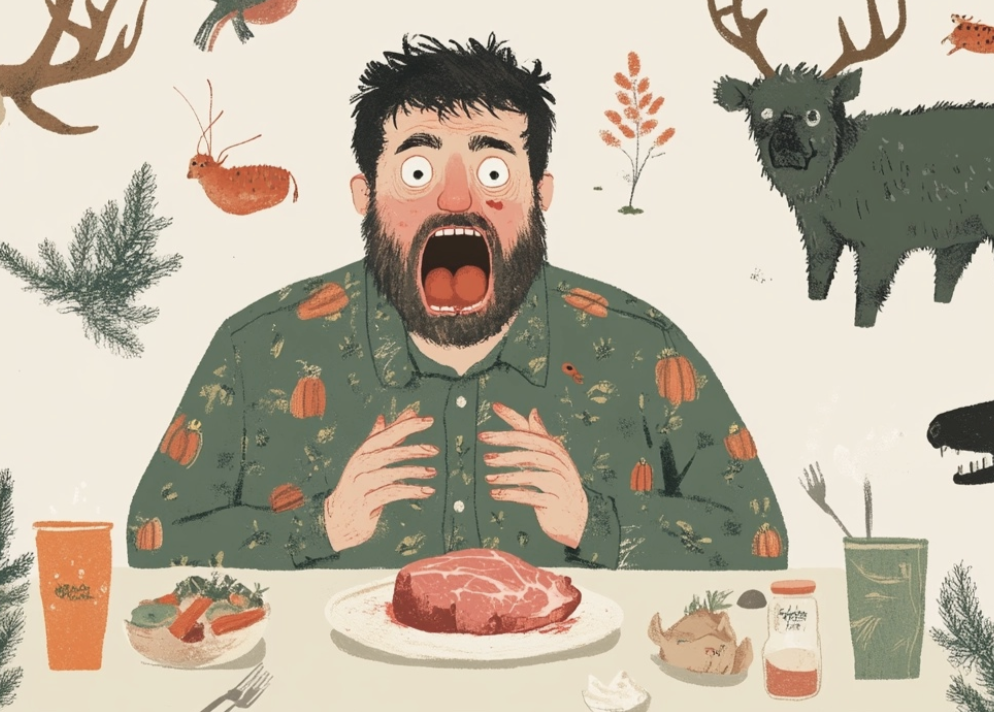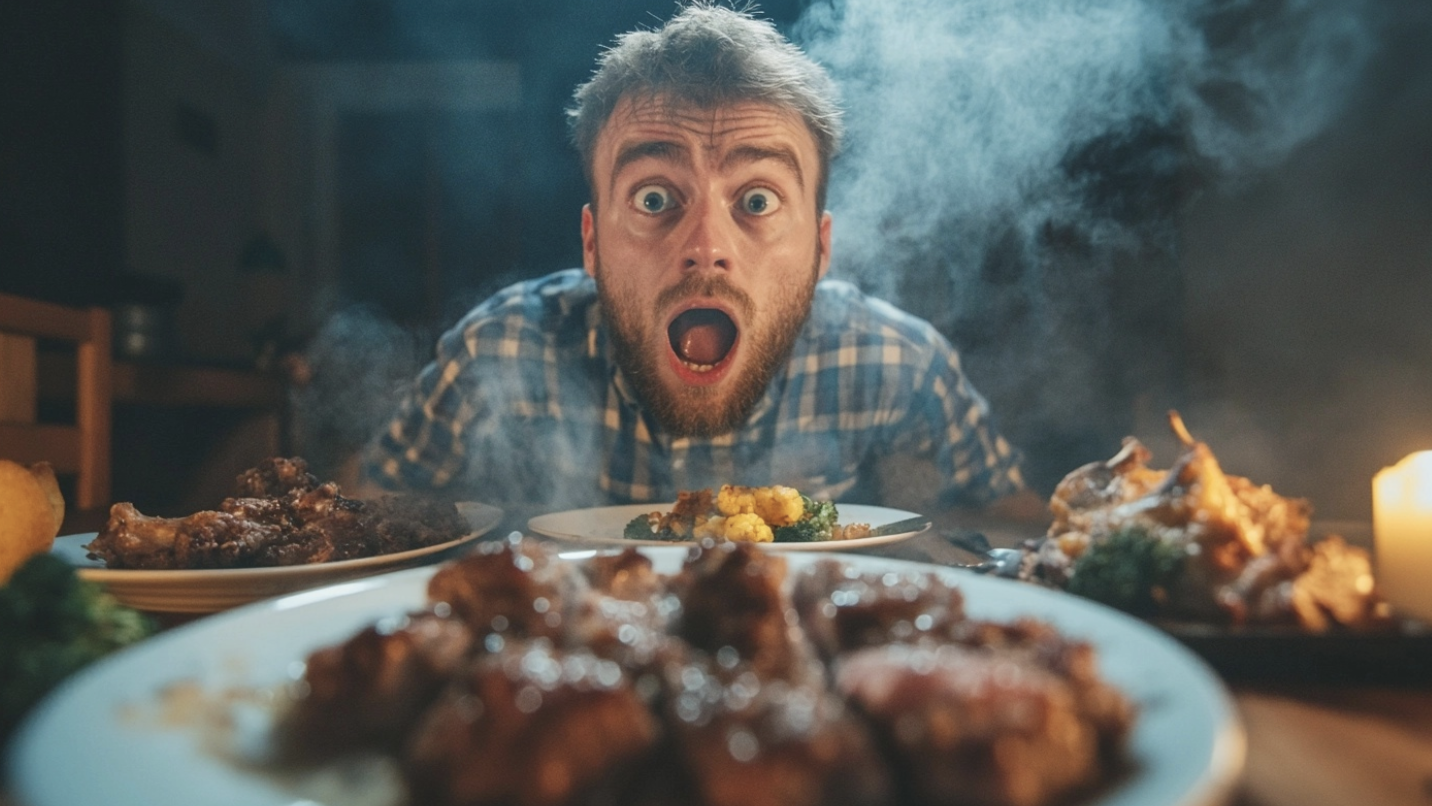
In a world where dietary preferences and restrictions are more recognized than ever, there is one phobia that often flies under the radar—carnophobia, the fear of meat.
This condition affects people on a deep emotional and physical level, causing them to avoid meat altogether.
Unlike common dietary choices such as vegetarianism or veganism, carnophobia is rooted in anxiety and fear, making it much more challenging to manage.
Whether it stems from a traumatic experience or ethical concerns, those affected find it difficult to be around or consume meat.
In this blog, we’ll explore the causes, symptoms, and coping strategies for carnophobia, shedding light on how it impacts daily life and how individuals can seek support.
What is Carnophobia?
Carnophobia is the fear of meat, where individuals experience strong feelings of anxiety or discomfort when they are near, thinking about, or consuming meat.
This phobia can vary in intensity, with some people avoiding specific types of meat, like red meat or poultry, while others are unable to tolerate the sight, smell, or even mention of meat.
Carnophobia is not simply a dietary preference or a lifestyle choice like vegetarianism; it is a genuine psychological condition that can interfere with a person’s daily life.
People with carnophobia may experience symptoms such as nausea, increased heart rate, or anxiety attacks when exposed to meat.
This phobia can be triggered by various factors, including past trauma, ethical concerns, or health-related fears, which all contribute to the development of this aversion.
Common Causes of Carnophobia
Carnophobia can develop from a range of causes, each unique to the individual experiencing it.
One of the most common triggers is a traumatic experience related to meat, such as food poisoning or witnessing the slaughter of animals at a young age.
These events can create a lasting psychological impact, leading to a deep fear or aversion to meat.
Another significant cause is rooted in cultural or ethical beliefs. For some, consuming meat conflicts with personal values, particularly animal rights or environmental concerns.
This ethical discomfort can gradually evolve into a fear response.
Health-related anxieties, such as concerns about foodborne illnesses or contamination, can also contribute to carnophobia.
These individuals may fear that eating meat could result in serious health issues, further deepening their aversion.
Symptoms of Carnophobia

The symptoms of carnophobia can range from mild discomfort to severe anxiety, depending on the individual’s level of fear.
Physical symptoms often include nausea, sweating, increased heart rate, or even trembling when consuming meat or when thinking about consuming it.
The sight, smell, or mention of meat typically triggers these reactions.
Psychological symptoms are also common and may include intense feelings of dread or panic, obsessive thoughts about avoiding meat, or a constant worry about the presence of meat in social situations.
In some cases, individuals may experience full-blown anxiety or panic attacks when exposed to meat.
Behavioral signs of carnophobia include avoiding restaurants that serve meat, refusing to eat in situations where meat might be present, and socially isolating oneself to avoid anxiety-provoking environments.
Is Carnophobia Related to Other Phobias?
Carnophobia shares similarities with other food-related fears, such as cibophobia (fear of food) and emetophobia (fear of vomiting), both of which can involve extreme anxiety around specific foods.
While these phobias may overlap, carnophobia is distinct in its focus solely on meat.
Like other phobias, it often stems from psychological triggers and can coexist with conditions such as obsessive-compulsive disorder (OCD) or general anxiety disorder.
In some cases, individuals with carnophobia may also have a fear of contamination, similar to mysophobia (fear of germs), where meat is seen as a source of bacteria or illness.
The fear can also resemble specific health-related anxieties where the concern is more about the perceived danger of consuming meat, such as foodborne illnesses.
Treatment Options for Carnophobia
Carnophobia, like many phobias, can be treated through various therapeutic approaches. One of the most common treatments is Cognitive Behavioral Therapy (CBT).
This form of therapy helps individuals understand and change the thought patterns that lead to their fear of meat. By addressing these thoughts, people can gradually reduce their anxiety and fear response.
Exposure therapy is another effective method. In a controlled environment, individuals are slowly exposed to meat, starting with pictures or videos and progressing to physical interaction. This gradual exposure helps reduce the fear over time.
Working with a dietary counselor can be beneficial for those concerned about nutrition. They can ensure that the individual’s diet remains balanced, even if they avoid meat.
Living with Carnophobia: Coping Strategies
Living with carnophobia can be challenging, but there are practical strategies that can help individuals manage their fear.
One effective approach is mindful eating, where individuals focus on plant-based diets that provide adequate nutrition without meat.
Exploring diverse food options can help maintain a balanced diet while avoiding triggers.
Open communication with friends and family is also important. By explaining their fear and its impact, individuals can create a supportive environment where others understand their needs and concerns.
This reduces the pressure to engage in social situations involving meat.
Additionally, self-care practices, such as stress management techniques, can help cope with the anxiety that accompanies carnophobia.
Relaxation exercises, like meditation or breathing techniques, can reduce stress and improve overall well-being while navigating situations that may involve meat.
Conclusion
Carnophobia, while not widely recognized, is a real and impactful fear that affects many individuals.
Understanding its causes, symptoms, and treatment options can make a significant difference for those living with this phobia.
Whether it’s rooted in trauma, ethical concerns, or health anxieties, carnophobia can disrupt daily life in meaningful ways.
However, with the right treatment and coping strategies, individuals can manage their fear and lead fulfilling lives.
By addressing the emotional and social challenges associated with this phobia, those affected can find the support and solutions they need to live more comfortably.

